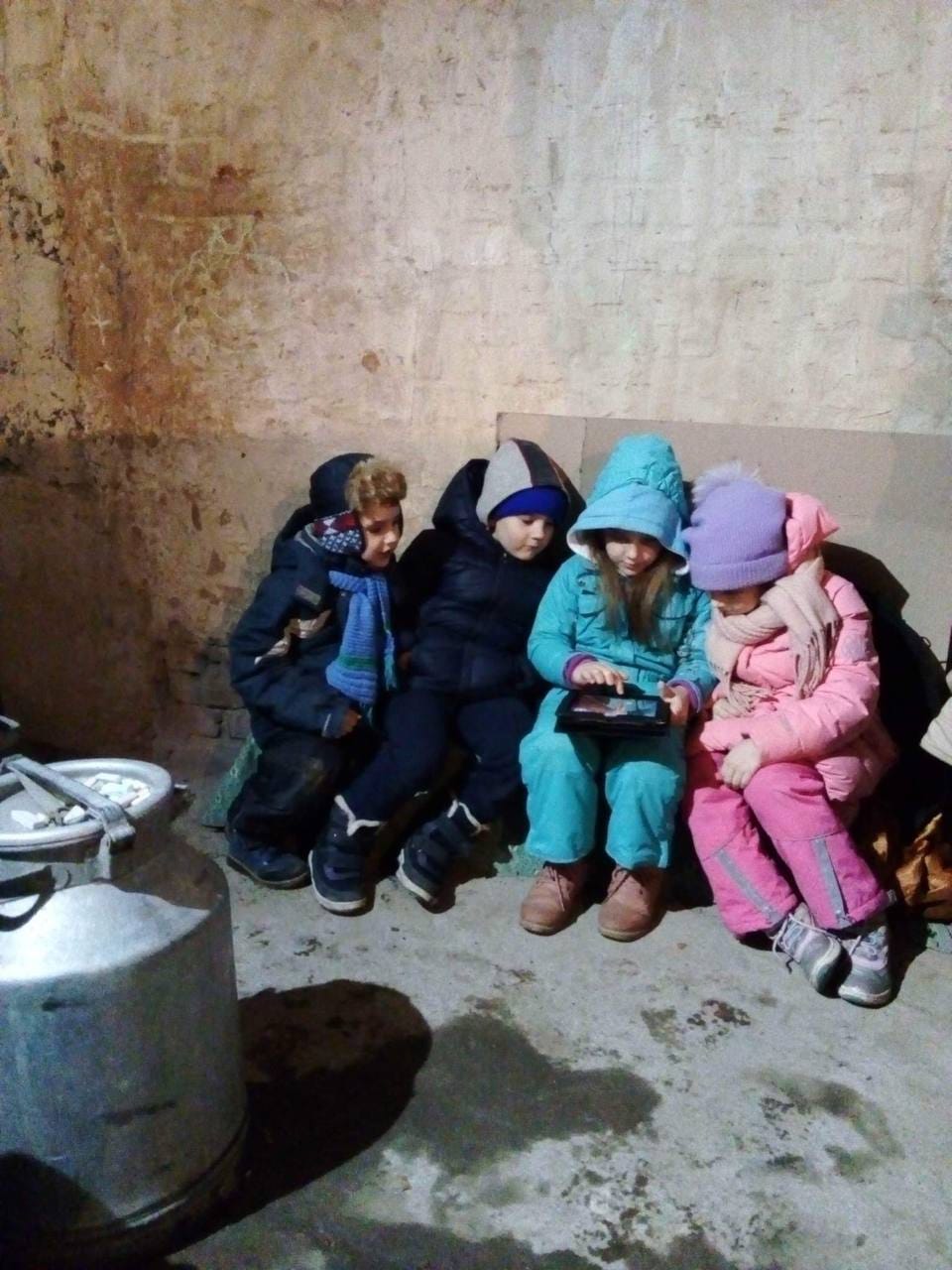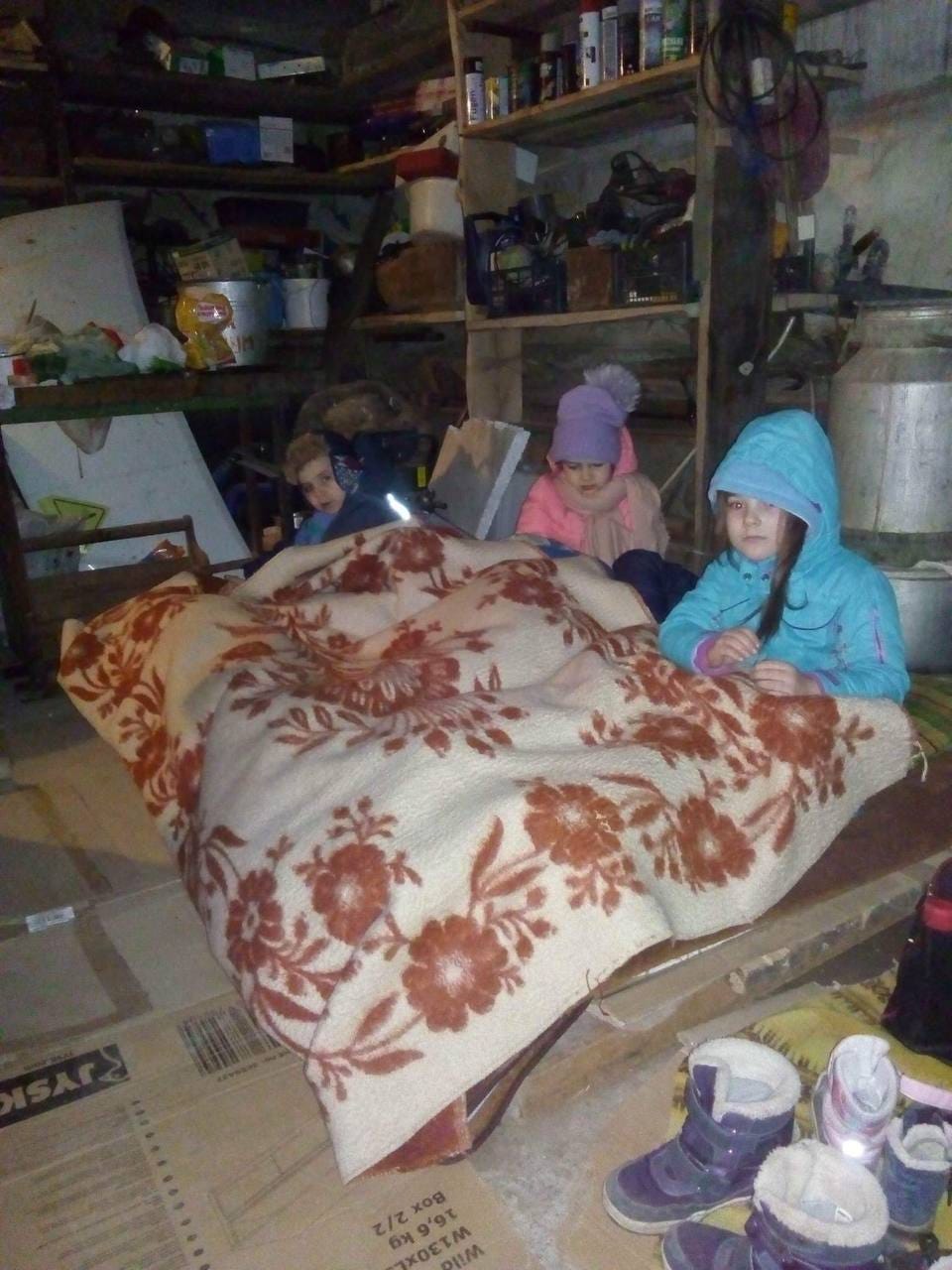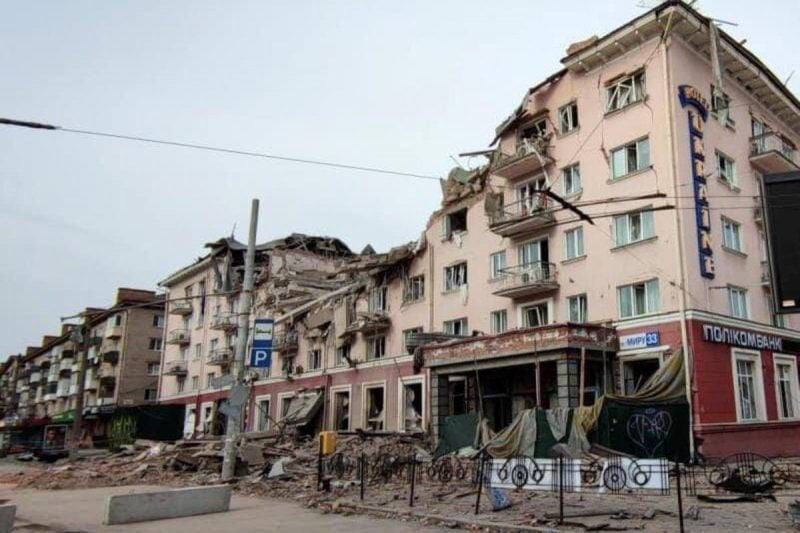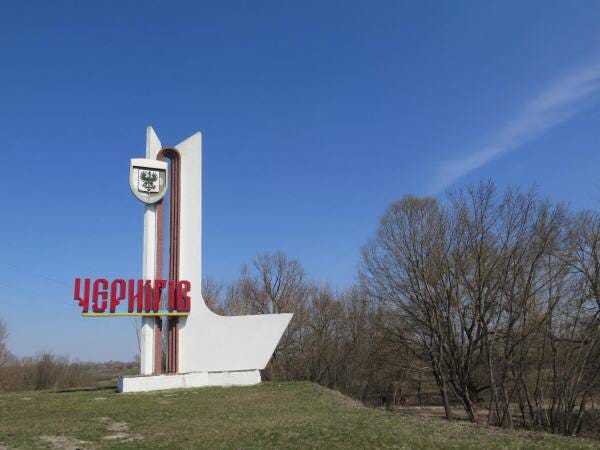Tatiana & kids
The eleventh in a series of twelve days of Christmas. Personal stories by Ukrainians now in Austria. In their own words.

I drove home from meeting Tatiana, in an inner city Italian gelato shop turned World Cup-watching cafe, thinking if the world was run by Ukrainian women we would all be much, much better off. Tatiana came in with a burst of energy, a huge smile on her strikingly beautiful face, and thanked me. For what? I said, taken aback. “You don’t remember, do you?”, she asked. “You really helped me in the summer. You helped me get a very good job.”
And then it all came back to me. Sitting in the Dubrovnik airport, our long weekend flight cancelled, I received a desperate message from a Ukrainian woman with a perfect resume, fluent English and German, several university degrees, who couldn’t get hired by anyone, anywhere. I wrote about it on Twitter, saying if she can’t get a job, how will anyone else? Several readers wrote me with job opportunities. One of them was successful for Tatiana. She now has an office job with ÖMAG. She loves it. Absolutely loves it. But her story doesn’t start there.
Tatiana’s story starts in February in Chernihiv where she lived in the home she and her husband built with her two children, a daughter (7) and a son (5). Her husband worked in Kyiv. At 5am on February 24, Tatiana was awoken by the sounds of “fireworks”. The explosions continued throughout the morning. She looked at her phone. “WAR” across all the channels. She felt total panic. She couldn’t think straight. The kids were sleeping. Air raid sirens. Tatiana thought back to her own grandmothers stories of war. The older generation would always say “anything but war”. Her grandmother had been in a town occupied by the Nazis near the Belarus border.
Tatiana took her kids and ran down the street to a neighbour’s house which had a cellar. They spent 10 days in the cold, underground. There was shooting all around them. The kids got sick. By March 3, they had 40C fevers. Tatiana decided they had to leave. She planned with neighbours to each pack a car and leave at 6am for western Ukraine. She could barely run home to grab things as it was only a 50 meter walk but there was shooting everywhere. Using a flashlight, she ran home at 5:45am, got some food, clothes, the dog. Explosions began at 6am. The neighbours started to panic, maybe we shouldn’t run? After an hour of talking, they decided to make a go for it. They left Chernihiv one car after the other at 7am.
The road towards Kyiv was closed by the Ukrainian army. At the checkpoint they told Tatiana, if you keep driving, you risk your life. She said I have no choice, and began to drive through fields and backroads. Kyiv. Cherkasy. Vinnytsia. Villages, driving through the night. Yes, there was a curfew. No, she drove right through it. It was hard to find gas. What would normally be a six to nine hour drive took four days. It was a test of endurance. Sick kids crying in the back seat, empty gas stations. In western Ukraine they were reunited with her husband who took a train from Kyiv. They spent five days together before he had to go back to Kyiv for work. Tatiana’s sister lives in Austria. She decided to go to Austria with the kids. She left her car — it was nearly destroyed from the drive out of Chernihiv — in western Ukraine, and found a driver who agreed to drive her and the kids to the Slovakia/Austria border. There, her sister and her brother-in-law met them.
Tatiana and her kids arrived in Vienna on March 13. For two months, they lived with her sister’s family. This was naturally not easy. A small apartment. Three more people. Her Austrian brother-in-law helped enrol the kids in kindergarten and school. Luckily, this was spring, and that still worked back then. The kids cried a lot. They missed Ukraine, Papa, wanted to go home. Tatiana recalls her young children saw everything with their own eyes. War is not something abstract to them. They saw, they heard, they felt. Tatiana says the school and kindergarten were helpful in aiding the children to adjust to their new lives.
Tatiana had once studied at Uni Wien to be an interpreter. She was determined to look for a good job where she could use her English and more importantly her very solid German skills. She sent her resume to all sorts of opportunities, but would be called to interview for positions which didn’t reflect her education or language skills. She would explain she cannot work a night shift at a hotel reception — she has two small kids and is a single parent now. She was about to give up in frustration after rejection after rejection for jobs she was overqualified for when the opportunity arose to apply for the job for which she was hired. They liked her, she liked them, she was offered the job. Tatiana was thrilled. But it took AMS six weeks (!) to process the paperwork so the company could hire a Ukrainian. She ran from AMS office to AMS office, three different locations across the city, begging them to hurry up. Her employer was getting nervous, what if it was never approved? Would she really be ready to start in August?
Finally, the paperwork came through, and Tatiana began working full time. By this point, the family had moved into a Vienna apartment they found via friends for which they only have to pay utilities. Friends and her sister helped with childcare until the school year began.
I asked Tatiana how does she handle a demanding, full-time job and two young children, all by herself, in a new country?
“I wake up at 5am”, she says. “I make a hot breakfast. It is really important to me that the kids eat properly in the morning. At 6am, I wake up the youngest, and we are out the door by 6:26am. I take him to kindergarten, the head straight to work. The oldest lets herself out at 7:45am and walks across the street to school.” Tatiana works from 7:15am in order to be able to leave the office at 16:00, because the aftercare program at school closes at 17:00, and the kindergarten closes at 17:30. When one is home sick, all are home sick.
Tatiana loves her job. She loves the office, the people, the intellectual challenge. She says her bosses are kind and patient and supportive. She does not have a single complaint. Her kids have made friends, they are speaking German already. She is thrilled they have the opportunity to learn a foreign language in a new country. The teacher told Tatiana that her daughter is doing well in first grade, keeping up with reading and math. Tatiana also arranged online support from the children’s Ukrainian teachers. Mondays and Wednesdays is English; Tuesdays and Fridays they have math and Ukrainian online. Tatiana pays the children’s former teachers to do 1-on-1 online sessions so the children will not fall behind in Ukraine’s curriculum, either. She knows she must apply for school for next fall for her son this January. The kindergarten staff say he is mature for his age.
I ask about seeing her husband, the kids’ father. The family travelled back to Ukraine twice, once in July, and once in October. The family reunions were lovely but hearing the sirens again was unnerving. It is hard for the family to live separated but her husband knows she and the kids are in safety here. It is cold now in Kyiv. He sleeps in the apartment in jackets. The thermostat reads +12C.
I ask about her parents. They stayed in Ukraine. Their daughters asked them a hundred times, and a hundred times they said no. They live in a town near where the borders of Ukraine, Belarus and Russia meet.
We talk about Tatiana’s positive attitude. How it helps open doors for her and her kids. She says she doesn’t understand her fellow compatriots who don’t want to learn German, don’t want to take advantage of what is being offered to them now, here, in this new country. Every Saturday, Tatiana takes her kids to extra German classes. They are free, offered by the city of Vienna. She read about them in a newspaper. She will sign up next semester, too. She raves about all the museums they have been able to visit, the experiences they have had in Vienna since they arrived. The kids loved the music museum, Time Travel. There is so much to do and see. The Christmas markets! The carousel on Rathaus!
Tatiana pulls out her phone and shows me these photos. “This is how the kids lived for 10 days. Now you see why they got sick.” Her neighbour is now in Poland. Her brother had been living there. Tatiana’s own house is still standing, but three windows were blown out when a rocket fell in the neighbour’s garden. Entire homes were destroyed. Their home in Chernihiv lies on the outskirts, 70 km from the border with Belarus, 80km from the border with Russia. She recalls those four days of hell driving the kids to safety all by herself. Crying. Pushing onwards. Saying to herself she must do it. She must get them to safety. She talks about finding an internal strength you don’t know you have. You are alone responsible for your kids. You must save them.
She talks about Russian soldiers ransacking homes and taking everything, even the toilets. One apparently thought a microwave was a safe because he had never seen a microwave before.
“I hate the Russians so much. How many lives they have destroyed. How can they sit there and still say they are apolitical? It is a lack of intelligence, all those who stayed in Russia? Russians don’t exist for me anymore. Why did they hit civilian targets? Why are our kids dying? They shot at civilian convoys. We built our homes to give our kids a better life and they came with the intention of destroying all of that.”
Tatiana talks about the feeling when someone steels your hopes, dreams, goals. She talked about her mental state at first, when you are still in shock, when you go in the store and go through the motions of buying groceries but your head isn’t there. It is hard to do everything alone, without the support of your husband. But you get up every morning and do it for the kids. Until July, she couldn’t listen to music. She couldn’t enjoy the simple, small pleasures in life.
At a recent Christmas party, one of her bosses asked Tatiana what her plans are for when the war ends. She says she doesn’t know now. She has built a life: a good job she enjoys, the kids have school, they are learning German. She has time to think about her answer.
Tatiana wrote me last night:
Таня, в дополнение к своей истории, хочу добавить, что за каждой моей ступенькой успеха, стоит ежедневная борьба над собой, над своим страхом в будущее, над своей неуверенностью в будущее. Когда опускаются руки, льются реки слез, наступает момент, когда ничего не хочется, и ты не знаешь как и что дальше … хочется вырвать себе душу, потому что она разрывается из нутри… но пожалев себя минут 30, вдоволь наревевшись, двигаешься дальше… потому что как в песне укр.певицы Т.Кароль,: «Сдаться, ты всегда сумеешь». Распрямляешь плечи и идёшь дальше.
Tanja, in addition to my story, I would like to add that for each step of my success, there is a daily battle against myself, against my fear for the future, against my uncertainty about the future. When you drop your arms, there are so many tears, and there is a moment when you don’t want anything anymore, you don’t know what to do next, how to continue… you want to pull out your soul because it is exploding from within… so you give yourself 30 minutes, you re-energize, you keep going…because it is like in the song by the Ukrainian Karol: “You will always be able to give up.” You lift up your shoulders and keep going.
Ok so now I am crying. This is what I meant about Ukrainian women. Where do they get this inner strength from? How are they able to climb such mountains against all odds and keep climbing? What is the magic recipe for not falling into a stupid unproductive sea of self pity and depression? It is just so remarkable. And so inspiring. And dare I say, super human?






